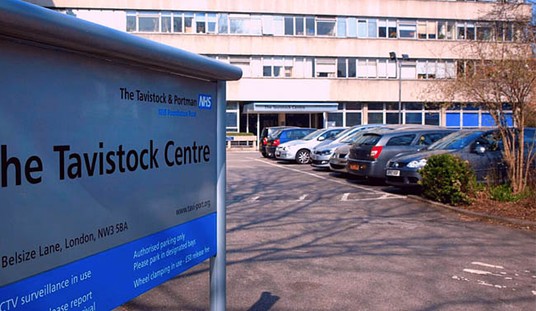Elections, political professionals like to say, are about the future. Non-incumbent office seekers more often seek to impart a sense of hopefulness about the coming days during a campaign rather than to relitigate the past. Republicans, however, have fretted that voters may be attracted to Clinton because voters see her as representative of a stable and prosperous time in American history. Whether or not voters want to return to the 1990s is the subject of debate, but what isn’t debatable is that most voters believe Clinton represents a return to the past.
NBC News and the Wall Street Journal, in conjunction with the Annenberg Public Policy Center, found that voters associated Clinton as well as former Florida Gov. Jeb Bush with the past more than the future. A plurality, 49 percent, said Clinton represents a “return to past policies” rather than someone who would “provide new ideas and vision.” That impression is even greater for Bush. 48 percent of respondents in the June 9 – 15 survey said he represents a return to the past compared to just 30 percent who said that he would “provide new ideas and vision.”
That may be unfair; at this stage in a presidential cycle, public opinion surveys are primarily name recognition and association tests. More voters associate the Bush name with the George W. Bush presidency and the post-9/11-era in the same way voters associated the Clinton name with the post-Cold War period. Fair or not, it is more often a liability than an asset to be associated with the past rather than being perceived as a bridge to the future.
Speaking of the past, it seems Clinton simply cannot get over the fact that she was almost universally scolded in the media two weeks ago when she inexplicably asserted that her and her husband “struggled” when they left the White House in 2001 because they were “dead broke.”
Politifact rated this claim “mostly false,” even though the family was strained by the legal fees associated with the impeachment proceedings and did have to take a loan from Terry McAuliffe in order for Clinton to purchase a New York home to show residency ahead of her Senate campaign. Nevertheless, and probably against the wishes of her handlers, Clinton doubled down on this claim in an interview with The Guardian.
Addressing the theme of income inequality which her nascent presidential campaign has recently adopted, Clinton said that the Montagnards would not lead her to the gallows because she is one of the good ones.
“They don’t see me as part of the problem,” Clinton said of those frustrated by the surging income inequality which she once called a “cancer.”
“[W]e pay ordinary income tax, unlike a lot of people who are truly well off, not to name names,” she continued, “and we’ve done it through dint of hard work.”
Nothing could possibly be motivating this doubling down save Clinton’s pride. She was thoroughly scolded in the press for claiming that her and her family “struggled” in any meaningful sense, and that admonishment seems to have stung.
This instinct to correct the record rather than to brush off criticism and seek more favorable ground is a troubling sign for Clinton backers. If she is perceived as a representative of the past, she may be spending a lot of her time defending against what she perceives to be unfair characterizations of her and her husband’s behavior in the 1990s rather than touting the good times and letting the rest roll off her back.







Join the conversation as a VIP Member